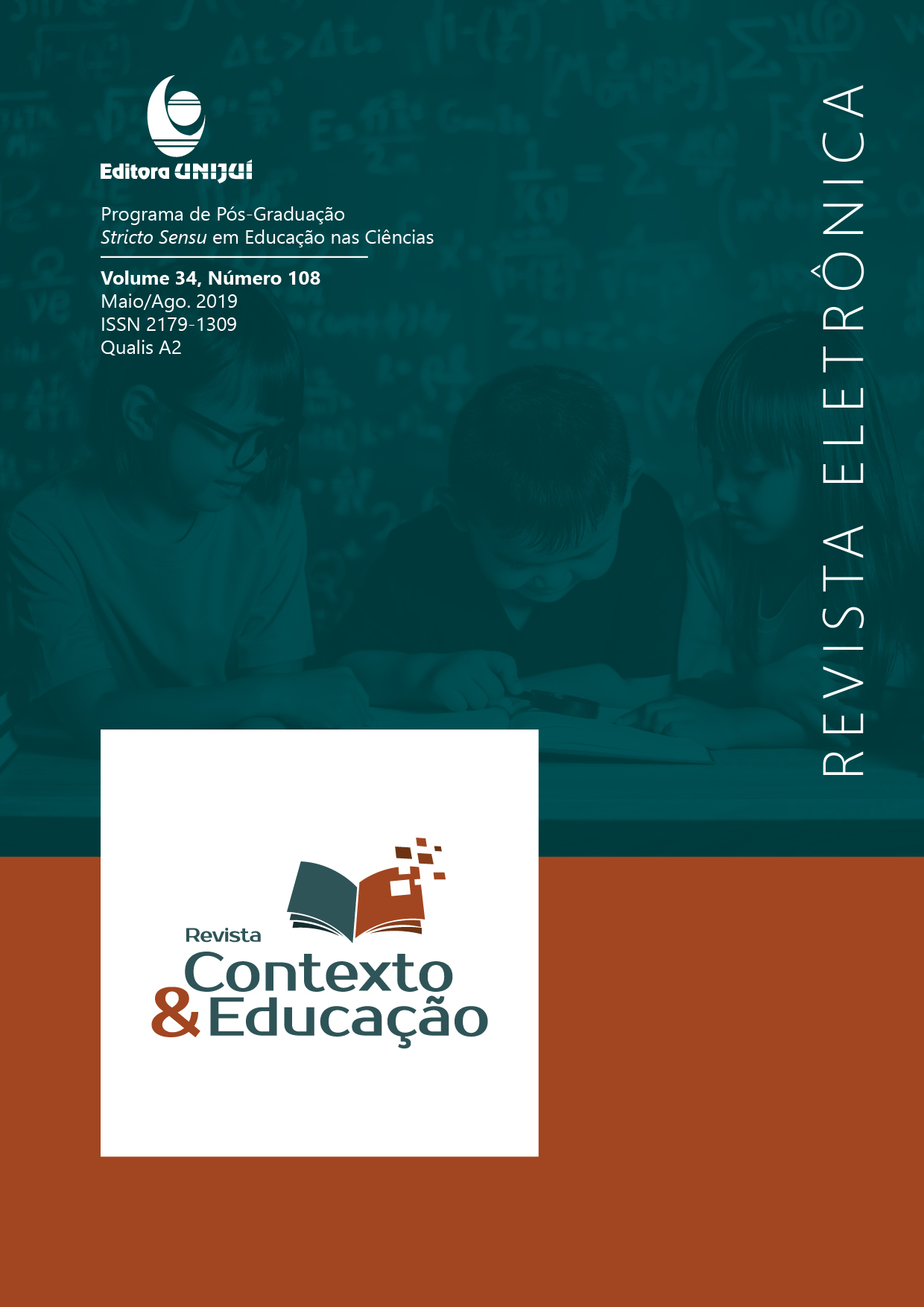FORMAÇÃO DE PROFESSORES E EDUCAÇÃO INTERCULTURAL: CONCEPÇÕES E PRÁTICAS DE LICENCIANDOS SOBRE DIVERSIDADE CULTURAL NA EDUCAÇÃO BÁSICA
DOI:
https://doi.org/10.21527/2179-1309.2019.108.9-25Palavras-chave:
formação docente, educação básica, diversidade, diferençaResumo
A escola muitas vezes busca homogeneizar e padronizar os indivíduos com ações assimilacionistas, não valorizando vozes subalternizadas e negando a diversidade cultural. O objetivo deste estudo foi compreender concepções sobre questões culturais e práticas de futuros professores em estágio de docência em uma escola pública estadual no Rio de Janeiro. A pesquisa é de natureza qualitativa e foram realizadas entrevistas semiestruturadas com cinco estudantes de cursos de licenciatura de Geografia, Biologia e Matemática. Os depoimentos foram analisados a partir do diálogo com autores que tratam de formação e prática docente, além do enfrentamento de preconceito e discriminação, a partir da abordagem da educação intercultural. A análise dos relatos indicou obstáculos que dificultam as práticas pedagógicas, que, por vezes, são produtos do preconceito velado e enraizado na escola. Mesmo havendo diferentes projetos e debates que buscavam minimizar tais atitudes, a análise indicou preconceito racial e de gênero na escola, sendo esses naturalizados pelo daltonismo cultural dos sujeitos na forma de “brincadeiras”. Práticas dialógicas foram apontadas como metodologias norteadoras das discussões sobre abordagens culturais. Ressalta-se a importância de uma formação pedagógica que se preocupe com a atuação docente capaz de desnaturalizar o preconceito e a discriminação na escola.
Downloads
Publicado
Como Citar
Edição
Seção
Licença
Ao publicar na Revista Contexto & Educação, os autores concordam com os seguintes termos:
Os trabalhos seguem a licença Creative Commons Atribuição 4.0 Internacional (CC BY 4.0), que permite:
Compartilhar — copiar e redistribuir o material em qualquer meio ou formato;
Adaptar — remixar, transformar e criar a partir do material para qualquer fim, inclusive comercial.
Essas permissões são irrevogáveis, desde que respeitados os seguintes termos:
Atribuição — os autores devem ser devidamente creditados, com link para a licença e indicação de eventuais alterações realizadas.
Sem restrições adicionais — não podem ser aplicadas condições legais ou tecnológicas que restrinjam o uso permitido pela licença.
Avisos:
A licença não se aplica a elementos em domínio público ou cobertos por exceções legais.
A licença não garante todos os direitos necessários para usos específicos (ex.: direitos de imagem, privacidade ou morais).
A revista não se responsabiliza pelas opiniões expressas nos artigos, que são de exclusiva responsabilidade dos autores. O Editor, com o apoio do Comitê Editorial, reserva-se o direito de sugerir ou solicitar modificações quando necessário.
Somente serão aceitos artigos científicos originais, com resultados de pesquisas de interesse que não tenham sido publicados nem submetidos simultaneamente a outro periódico com o mesmo objetivo.
A menção a marcas comerciais ou produtos específicos destina-se apenas à identificação, sem qualquer vínculo promocional por parte dos autores ou da revista.
Contrato de Licença (para artigos publicados a partir de outubro/2025): Os autores mantém os direitos autorais sobre seu artigo, e concedem a Revista Contexto & Educação o direito de primeira publicação.


